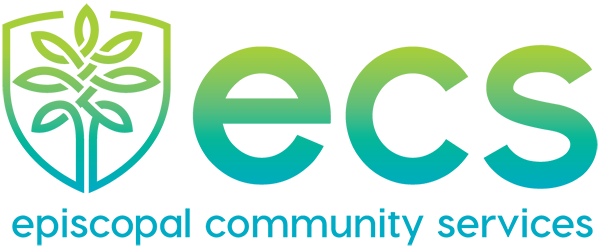Episcopal Community Services (ECS) has been uplifting San Diegans for nearly a century. Although its services have changed and some programs have come and gone, its mission to break barriers and transform communities has remained steadfast.
John has witnessed the lasting heartbeat of ECS firsthand. A client of ECS in the 90s and a supportive volunteer through the years after, John has not only felt the impact of ECS but has lent a hand to carrying the intention of compassionate service forward.
When John moved from New Orleans to San Diego to join the Navy, he didn’t know that he was already developing a substance use disorder (SUD). When he overheard a few of his new acquaintances talking about getting drugs downtown, he became interested, so he ventured downtown, made a purchase, and was arrested the very same day. When his urinalysis came back positive for drugs, the Navy no longer wanted to retain him. They gave him the option to go to rehab or back home to New Orleans. “I knew that if I went back home, I was going to be dead,” John said. So, he accepted the help and went to rehab. However, challenges awaited him when he finished the program. “I found out that once I got back to San Diego that I was going to be kicked out [of the Navy] and once I was kicked out, I was going to be homeless,” he explained.
With only his seabag full of clothes and his final paycheck from the Navy, John was left on his own. He saw a glimmer of hope when he was hired at a new job, but he had no place to go. Then he heard about ECS’ transitional housing program. “God was working in my life,” John said. After a period of waiting, a spot finally opened at the program. John recalled going to the program to interview for the spot and meeting the program manager Linda Thomas, who John described as a “beautiful soul.”
One of the requirements for the program was a paystub to prove employment. John’s new job did not start until the following week, so he had nothing to show Linda. But he shared his story with her and “she saw the desperation in my eyes and saw that I wasn't running a story on her... so she made an exception,” and John moved in that night.
“I showed up there at 21 years old with literally no living skills, no responsibilities, other than knowing I needed to survive. I needed to stay clean and sober,” John said. The staff — including Linda and two other staff members, Loren and Cynthia — quickly took him under their wings, checking in on him and supporting him the whole way. “I learned a lot of things. I learned how to be responsible; they gave me the chance to go to school and work and save money.” Cynthia even baked him a cake to celebrate his first year of sobriety.
The program also led John to his best friend who encouraged him to pursue his goals, such as becoming a registered nurse (RN). “About nine months in, I met my best friend, we became roommates. He’s still my best friend, he’s still sober 34 years,” he said.
John graduated from the program, maintained sobriety, attended and graduated from college, became an RN, got married, and had two children. “My life has progressively gotten better as a result of all those things I learned at ECS,” he said.










